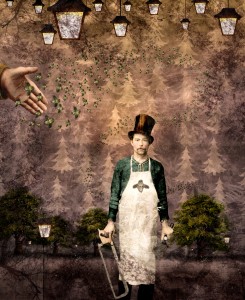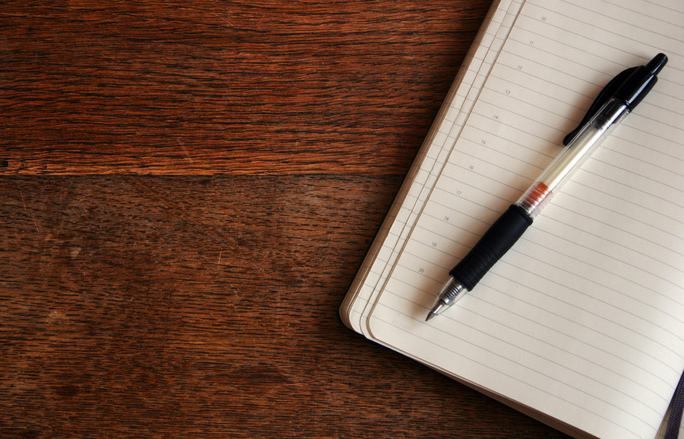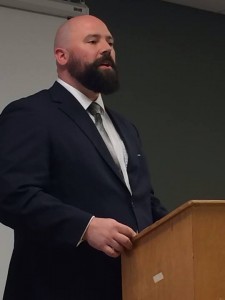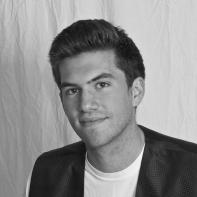 Every artist has their own individualized workflow and some of them can be pretty strange. Truman Capote and Marcel Proust famously penned their pages while lying down while Ernest Hemingway and Albert Camus preferred to write while standing. German poet Friedrich Schiller is said to have kept a drawer full of rotting apples in his workspace because their pungent smell motivated him to continue writing. The list of the bizarre routines of creative individuals is a mile long but what about the psychological stages of creating artwork?
Every artist has their own individualized workflow and some of them can be pretty strange. Truman Capote and Marcel Proust famously penned their pages while lying down while Ernest Hemingway and Albert Camus preferred to write while standing. German poet Friedrich Schiller is said to have kept a drawer full of rotting apples in his workspace because their pungent smell motivated him to continue writing. The list of the bizarre routines of creative individuals is a mile long but what about the psychological stages of creating artwork?
Here are the eight distinct stages that I have identified in my own workflow.
- Nausea and Terror of a Blank Canvas, Followed by Diversionary Tactics and Despair:
This is the first identifiable stage because it is the first step that involves some kind of action. Indeed, there is almost always a pre-stage where you bask in the glow of your most recent project while you put off starting a new one for days or weeks or months for fear of facing stage one. But when the fanfare (or, more often, self-congratulation) surrounding your latest work dies down, you’re left with the realization that you must start all over again…from the beginning… from scratch. Once you’ve mustered the courage, stage one sets in. Hard.
You sit down, face the blank canvas and, after a half a moment of eye squinting, decide that you should probably make a coffee. Caffeine in tow, you try again but this time the pile of dishes overflowing in the sink catches your eye and, how can you possibly produce your next great masterpiece with last night’s dinner rotting in the sink (you’re no Friedrich Schiller, after all). You complete this ritual sub-phase of stage one only when your bathroom is spotless, all bills are paid, you’ve “exercised”, showered and done the laundry.
Finally, when all known diversionary tactics have been exhausted, you return to the canvas. Panic truly sets in as you think of the wild success of your previous work, in your stage one mind it was an achievement akin to -insert your favorite master work by any dead European artist-. You feel resentful of your past self, cursing that pompous, over-achieving, genius! Overwhelmed by the enormity of the task at hand, you slither out of your chair, crawl across the living room floor and into your bed where you pull the covers tight over your head. Assuming the fetal position under your down comforter, you remain in what is rapidly becoming a sweat lodge until you fall asleep or have to pee.
- The Search for Inspiration.
You finally manage to drag yourself out of bed when you realize the obvious solution to the problem at hand; consult your past self! The past you became such a hero in your mind during stage one that they must have had some valuable insights that your present self can now plunder and take credit for. You consult numerous old, half used moleskine notebooks searching for the genius of your past self. You scour through pieces of poems, old shopping lists and half-hearted doodles before reaching a page with “ideas” scrawled across the top. There are two things on this list:
1) Dog phone solution for interspecies communication?
2) Ask Dad to see his list of ideas.
Instead of being disheartened by this finding, you’re oddly liberated by the realization that your past self really isn’t all they’re cracked up to be, in fact, they’re just like the present you!
Reinvigorated, you consult the Internet to see what insights StumbleUpon or Pinterest can offer. You click a Twitter link to a new show opening at the Brooklyn Museum of Art and BAM…
- An Idea Wallops you in the Stomach
It’s all you can think about. You’ve never been more excited in your life but unfortunately, it is now 3 o’clock in the morning and you have to be up at 8. You attempt to quiet your mind (which is doing some kind of wild, flailing interpretive dance inside your skill) telling it “Hush now. You have an idea. Everything is going to be alright.” But, of course, after days or weeks or months of struggling for a new idea, there is no way to turn your brain off now that you’ve found it. You toss and turn as your idea becomes more and more grandiose
Original idea: a life size statue of Paris Hilton dressed in rags.
Evolves to: a four times life size statue of Paris Hilton wearing rags that I will create from the discarded clothing I’ll find in a landfill.
Evolves to: I’ll live in the landfill for a month, all the while constructing clothing out of filthy, discarded rags and then I’ll walk to New York and do a performance as Paris Hilton in the middle of Times Square.
The final, impossible permutation of the idea comes at 6 am when you’re on the brink of sleep. Fortunately, you do not remember the latest version when you wake up.
- The Letdown of the Groundwork
After your sleepless night of imagining all the incredible possibilities presented by your new idea you’re invigorated and anxious to begin your new project. Perhaps you spent the entire day at “work” skirting your responsibilities and instead spending your time daydreaming about minute details and embellishments that you’ll add to your project
I’ll rub decaying apples all over the Paris Hilton rag ensemble to channel the late great Friedrich Schiller… how’s that for a conceptual twist?
At five o’clock, you leave a meeting with your boss in mid-sentence to race home and finally begin work on the idea. Only then do you realize that you still need to stretch and size your canvas, or format your document or mix the plaster for your Paris Hilton statue. This is a great letdown when, after hours of fantasizing about your finished project, you begin to understand that you actually have to make it when all you really want to do is rub decaying apples all over it.
- Hitting the Wall
After all the frustration of finding an idea, the ecstasy of fantasizing about it and the letdown of having to do the ground work, now you’re elbows deep in your project. All the prerequisite formalities of setting the stage for your masterpiece are done and now all you have to do is fill it with your amazing idea. The only problem is that a few hours in, and nothing is working the way you thought it would. The Paris Hilton mold you cast is coming out way more Wynonna Judd and the supermarket doesn’t even sell rotting apples. You start to feel completely discouraged as you begin to forget what was so compelling about your idea in the first place. After the emotional rollercoaster of the past few days or weeks or months your brain has short circuited and you fall into a trance-like-state. Staring off vacantly into the distance.
- The Push
This stage is, in my opinion, the most critical in the entire process and, ironically, it is the one in which you are least involved. Also, I’ll add, it is very tempting to stop at stage five and revert to stage one but DON’T! That path is an endless feedback loop of despair, misery and unrealized dreams and inexplicable miracles are about to happen here in stage six.
As your brain checks out entirely from the creative process, somehow, your hands continue to mindlessly interact with your complete failure of a project. No one knows what exactly happens here at stage six because everyone who experiences it has temporarily become a mindless drone carrying out the initiatives of the Unconscious, or God or the Alien Race of Ant-People. Eventually you snap out of your stupor and begin to see what your body has been doing for the past day or week or month.
You can’t believe your eyes when you notice that the project before you has completely transformed into something that actually has some miniscule flicker of potential. Confused, you look around the room to make sure that no one is playing a joke on you. After you look in all the closets and under the bed, you allow yourself to feel excited about your project again. This quasi-mystical experience had given you back your mojo and you do a little dance to celebrate.
- Flow
With the new understanding that you’re on the path laid out by your Unconscious, or God or the Alien Race of Ant-People, you resume your work with a furious sense of purpose and drive. Nothing can distract you from the task at hand.
Afraid of the fervor with which I’m working as my wide bloodshot eyes stare fixed two inches away from the computer screen, my husband says something like: “Sweetie, I made you this French inspired five course meal. Aren’t you hungry? You’ve been in that same position for three days…. Honey…?”
I chuckle and reply vaguely: “That’s funny, dear”
You gain a super human ability to work for hours on end without food, water or rest. You don’t notice the passage of time until….
- The Click
Suddenly, the project is finished. You can’t explain why or how you know, but you have an instant realization that if you add one more embellishment then entire thing will collapse in on itself like a dying star. With a great sense of calm you can at last tear your eyes away from your project. The first clue that something is amiss comes when you notice that a faint layer of dust has descended on every surface of your workspace. Only then do you locate a clock and calendar and, with a jolt of shock, realize that days or weeks or months have passed inside the black hole that is stage seven. You make a mental note to ask family and friends what’s been going on in their lives and in the world, but only after you fill them in on the triumph of your most recent project. Turns out, your sister had the baby, the war ended and Coke came out with a new Diet version that uses Stivia instead of Aspertame.
You do leave your workspace eventually but return every few minutes or hours to stare lovingly at your masterpiece, astonished by your naivety in stage one when you thought you’d never be able to top your previous work. That work was terrible, you think, this new piece is the pinnacle of my creativity. And with that one, small, innocent thought your project becomes the property of your genius past self and you stare, horrified, down the barrel of stage one.
 No generation in history has experienced the kind of cultural and societal shift that millennials have, no period so tumultuous, so fervid, so unapologetically modern. But while science and technology have been so effectively forged in this smithy of currentness, the arts have seemed to lapse into the foreground, antagonistic and outdated towards this age of information. But it is in the arts where millennial identity is made, where an antidote to the vacuousness of 21st century can be found.
No generation in history has experienced the kind of cultural and societal shift that millennials have, no period so tumultuous, so fervid, so unapologetically modern. But while science and technology have been so effectively forged in this smithy of currentness, the arts have seemed to lapse into the foreground, antagonistic and outdated towards this age of information. But it is in the arts where millennial identity is made, where an antidote to the vacuousness of 21st century can be found.



